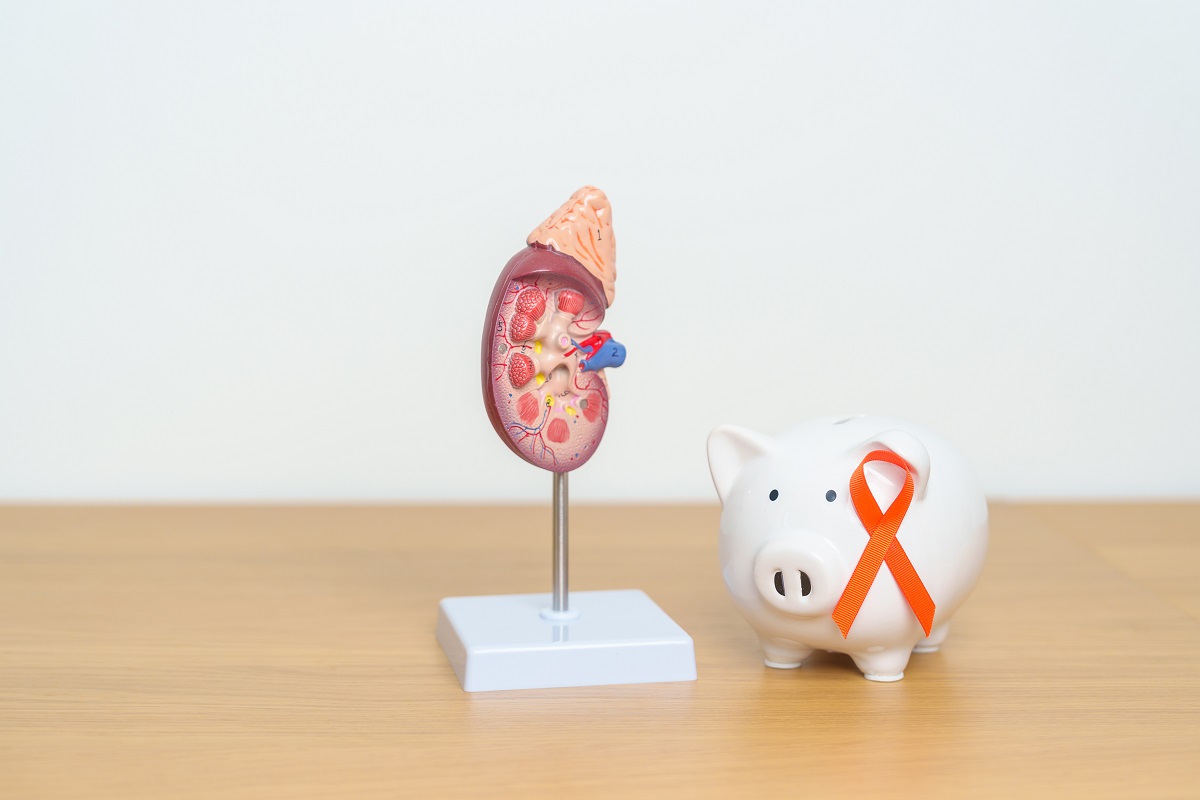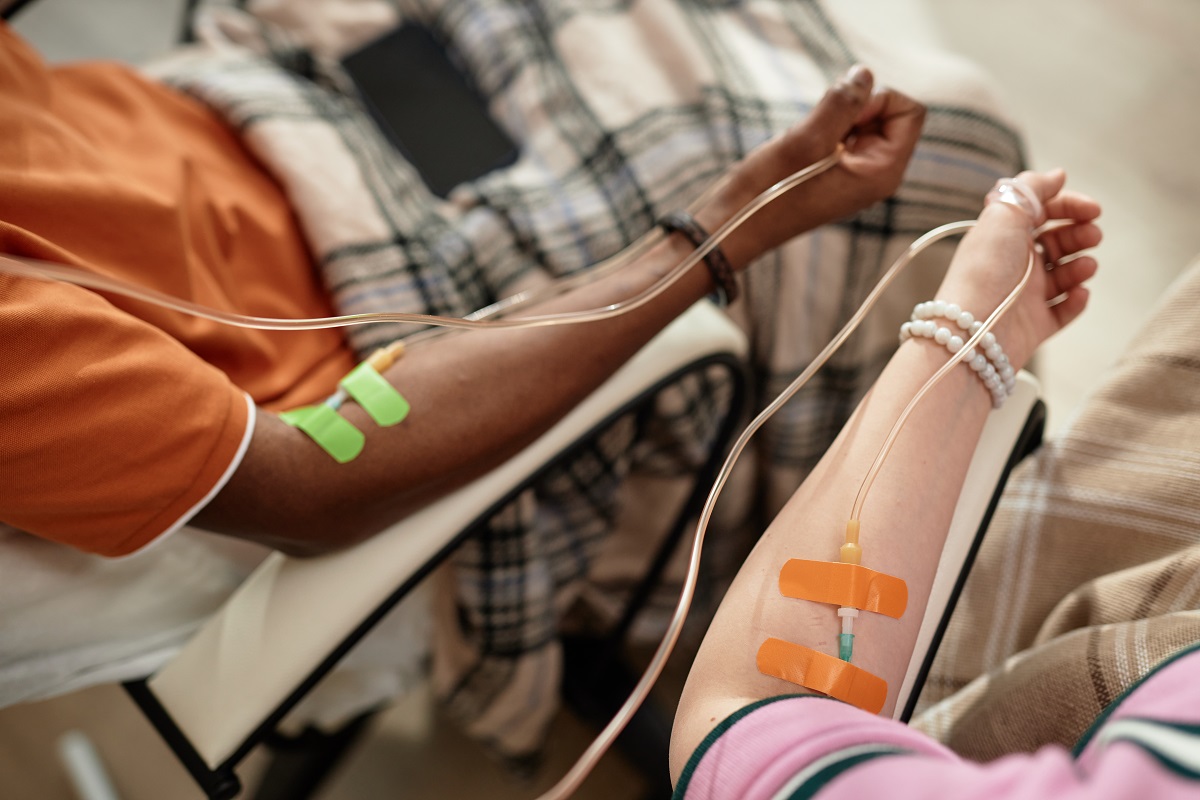This type of cancer occurs in the kidneys when abnormal cells start to multiply and form tumors. The two bean-shaped organs, each one roughly the size of a fist are called kidneys. These organs are located behind the abdominal organs on each side of the spine.
One of the most common kidney cancer types that occurs in adults is renal cell carcinoma. However, other kidney cancer types also can occur but rarely. There is a kidney cancer type that mostly appears in children, it is known as Wilms tumor.
Unfortunately, the number of people with kidney cancer increases every year. It happens due to imaging tests (such as CT scans) that are more frequently used. During this test, doctors can identify the tumors incidentally. Moreover, kidney cancer is usually found when it is small and confined to the kidney.
Symptoms
When this cancer type occurs, it may not provoke any symptoms but over time people can experience the following symptoms. Examples include:
- Tiredness
- Unusual weight loss
- Persistent pain in the back or side
- Loss of appetite
- Blood in the urine (that usually appears pink, red, or cola-colored)
Do not hesitate to see a doctor if you experience any of the symptoms listed above.
Causes
The exact cause of kidney cancer is now known but healthcare providers think certain DNA changes provoke abnormal cells to grow and multiply. However, DNA mutations give quite different instructions to cancer cells, which lead to their multiply while regular cells die. As a result, an increased amount of abnormal cells form a tumor. Furthermore, these tumors can destroy healthy cells. Over time, cancer cells can spread to other body parts (metastatic cancer).
Risk Factors
Check below some factors that could increase your risk of developing this cancer type:
- Older age – The risk of kidney cancer elevates as people become older.
- Smoking tobacco – An increased risk of kidney cancer have people who smoke.
- Obesity – People with a BMI index higher than 30 are more prone to develop this cancer type than healthy ones.
- Hypertension (high blood pressure) – this condition also increases the risk of kidney cancer.
- Inherited diseases – These include von Hippel-Lindau disease, Birt-Hogg-Dube syndrome, tuberous sclerosis complex, hereditary papillary renal cell carcinoma, and familial renal cancer.
- Family history – If a member of your family experiences kidney cancer, your risk increases too.
How to Prevent Kidney Cancer?
It is not possible to prevent this cancer type because it is not clear the exact cause. However, the following tips can reduce your risk of getting kidney cancer. Examples include:
- Limit or avoid alcoholic drinks – It is advised to drink alcohol in moderation. Otherwise, it may lead to unpleasant outcomes.
- Add to your diet more fruits and vegetables – Adopt a healthy diet full of fresh fruits and vegetables.
- Regular exercise – It is recommended to aim for at least 30 minutes of exercise per day.
- Try to keep a healthy weight – Maintaining a healthy weight is recommended because it decreases the risk of different health problems. In case you do not have a healthy weight, discuss it with your healthcare professional.
- Quit smoking – If it is difficult to stop smoking, consult with your doctor about strategies that can help you to quit. However, if you are not a smoker, never start.
- Manage high blood pressure and stress – Regularly check your blood pressure and talk with your doctor about ways to reduce it. These include exercise, weight loss, diet, quitting smoking, and medicines (sometimes). In addition, stress is one of the leading causes of different health problems. If you cannot cope with stressful situations, do not hesitate to visit a healthcare specialist.
Diagnosis
Before diagnosis, doctors will analyze your medical history and ask questions about symptoms. Thereafter, they can perform some tests that will help to confirm the condition. These include imaging tests, blood and urine tests, biopsy, and others. Check below tests used to diagnose kidney cancer:
- Blood and urine tests – These tests are usually done to check the amount of red blood cells and certain substances in the urine (including blood, bacteria, and cancer cells).
- Imaging tests – These include ultrasound, CT, or MRI and are done to get detailed images of the kidneys. Previous tests can help doctors determine the location and size of the tumors.
- Biopsy – This is a procedure in which doctors get a small sample of the tissue and send it to the laboratory for testing. In case imaging tests show enough information, a biopsy may not be required.
Staging Kidney Cancer
Once doctors confirm kidney cancer, they will determine the cancer stage (extent). Staging the cancer helps physicians make the best treatment. Healthcare professionals often stage cancer by performing repeatedly CT and MRI scans.
The kidney cancer stages range from 1 to 4. In the first stage, the tumor is confined to the kidneys. As the tumor grows, the stage gets higher and the last stage occurs when the cancer cells break away and go throughout the body affecting other tissues and organs.
Treatment
In some cases, the treatment for this cancer type begins with surgery and if the tumor is confined to the kidney is usually the only treatment required. Physicians may prescribe some medicines to prevent the recurrence of the cancer. In case the cancer cells spread to other tissues and organs in the body, surgery may be not possible and physicians will prescribe you other treatment options.
However, treatments prescribed by doctors are different because they depend on different factors including the stage of the cancer, existing health problems, your preferences, and others. Check below some treatment options often recommended by physicians:
Surgery
This is an effective treatment option if the cancer is confined to the kidney. It involves the removal of the tumor and preserving kidney function if it is possible. Check below some surgery types used to treat kidney cancer:
- Complete nephrectomy – This surgery type is also known as a radical nephrectomy and it involves the removal of the affected kidney completely and some healthy tissues that surround it (including lymph nodes, adrenal gland, and others).
- Partial nephrectomy – This surgery involves the removal of the tumor and a small part of healthy tissues. It is also known as kidney-sparing or nephron-sparing surgery. Partial nephrectomy is a good option if you have only one kidney or for small kidney cancers. Generally, a complete nephrectomy is preferred to preserve kidney function. Moreover, it can also prevent later complications (such as kidney disease, need for dialysis, and others)
Cryoablation
This treatment option involves freezing the cancer cells. Doctors use cold gas in a special needle that is inserted through the skin into the kidney cancer while using ultrasound or other imaging procedures as guidance.
This procedure can be enough to destroy small cancers and it is commonly used when people have other health problems that make surgery risky.
Radiofrequency Ablation
This is a procedure in which the cancer cells are heated. It also involves a special probe that is inserted through the skin and into the kidney cancer using ultrasound as guidance. Thereafter, the electrical current is run through the needle into cancer cells helping to destroy them.
Radiation Therapy
This treatment option uses powerful energy beams to kill cancer cells. During this procedure, the patient will lie on a table and a special machine will move around him/her. Radiation therapy is an effective option to reduce the symptoms of kidney cancer and prevent its spreading to other body parts (including the brain, bones, and others).
Targeted Therapy
This treatment option involves medicines that attack specific proteins in the cancer cells, which make them die.
Immunotherapy
It involves special medications that boost the immune system. However, cancer cells produce some chemicals that help hide them from the body’s defense (immune system). So, certain medicines help the body’s defense identify and destroy cancer cells.
This treatment option is usually recommended by physicians after surgery to destroy cancer cells that may remain.
Chemotherapy
This treatment involves strong medicines and they are usually given through a vein (IV). However, kidney cancers are resistant to chemotherapy but can be effective for rare types of kidney cancer.
Alternative Medication
The following therapies cannot cure kidney cancer but can help to cope with symptoms and adverse reactions caused by medicines. If you are interested in any of the following procedures, discuss it with your healthcare professional. For example:
- Massage therapy
- Music therapy
- Relaxation exercises
- Spirituality
- Exercise
- Art therapy
- Acupuncture
- Meditation
Frequently Asked Questions
Is kidney cancer curable?
Yes but only in the early stages. For instance, if you receive surgery to remove a small tumor and certain nearby tissues is usually the only treatment needed. In such cases, doctors may advise some medications to prevent the cancer recurrence. In case the tumor is large or cancer cells begin to spread to other body organs and tissues, it is not possible to cure cancer.
What are the main symptoms of kidney cancer?
These include:
- Extreme tiredness (fatigue)
- Anemia (reduced red blood cell counts)
- Unusual weight loss
- Loss of appetite
- Fever
- Low back pain
- Hematuria (blood in the urine)
If you experience any of the previous symptoms, contact your healthcare professional right away.
What diseases can be mistaken for kidney cancer?
- Infection of the kidneys
- Bladder infection
- Kidney cyst
- Renal infarction
- Irritable bowel syndrome
- Urinary tract infections
If you have additional questions, ask your healthcare provider.




